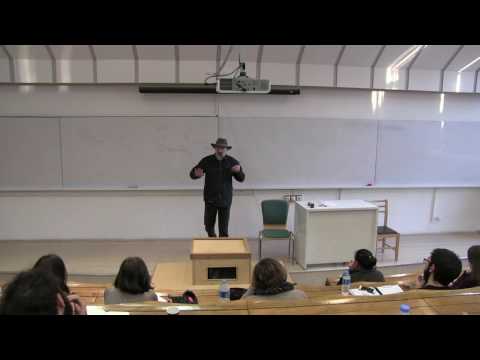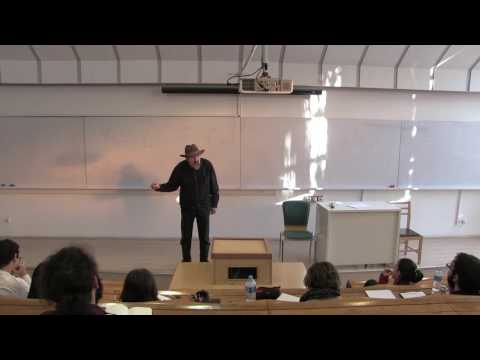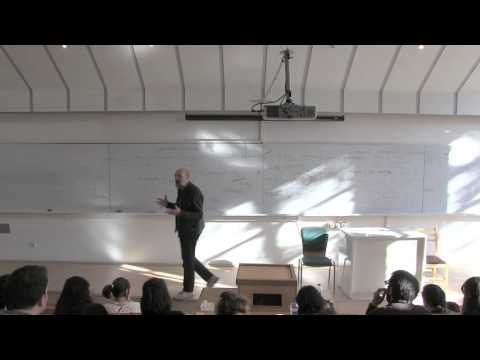Instructor: Assoc. Prof. Erdoğan Yıldırım
For Lecture Notes: http://ocw.metu.edu.tr/course/view.php?id=249
 42:43 Foucault and Genealogy - Lecture 2
42:43 Foucault and Genealogy - Lecture 2 36:56 Foucault and Genealogy - Lecture 1
36:56 Foucault and Genealogy - Lecture 1
1. Clicking ▼&► to (un)fold the tree menu may facilitate locating what you want to find. 2. Videos embedded here do not necessarily represent my viewpoints or preferences. 3. This is just one of my several websites. Please click the category-tags below these two lines to go to each independent website.
 42:43 Foucault and Genealogy - Lecture 2
42:43 Foucault and Genealogy - Lecture 2 36:56 Foucault and Genealogy - Lecture 1
36:56 Foucault and Genealogy - Lecture 1
 47:05 Foucault and History of Sexuality - Lecture 4
47:05 Foucault and History of Sexuality - Lecture 4 41:28 Foucault and History of Sexuality - Lecture 3
41:28 Foucault and History of Sexuality - Lecture 3 47:20 Foucault and History of Sexuality - Lecture 2
47:20 Foucault and History of Sexuality - Lecture 2 4:17 Dean Radin - Does ESP Reveal Spirit Existence?
4:17 Dean Radin - Does ESP Reveal Spirit Existence? 3:26 Robert L. Park - Does ESP Reveal Spirit Existence?
3:26 Robert L. Park - Does ESP Reveal Spirit Existence? 2:44
Stephen Braude - Does ESP Reveal Spirit Existence?
2:44
Stephen Braude - Does ESP Reveal Spirit Existence? 3:26 John Polkinghorne - Perhaps Even God Doesn't Know the Future?
3:26 John Polkinghorne - Perhaps Even God Doesn't Know the Future? 7:40 James Tabor - Perhaps Even God Doesn't Know the Future?
7:40 James Tabor - Perhaps Even God Doesn't Know the Future? 9:49 Greg Boyd - Perhaps Even God Doesn't Know the Future?
9:49 Greg Boyd - Perhaps Even God Doesn't Know the Future? 1:11 Wendy Freedman - How Far Does the Cosmos Go?
1:11 Wendy Freedman - How Far Does the Cosmos Go? 8:50 Andrei Linde - How Far Does the Cosmos Go?
8:50 Andrei Linde - How Far Does the Cosmos Go? 3:23 Alan Guth - How Far Does the Cosmos Go?
3:23 Alan Guth - How Far Does the Cosmos Go?